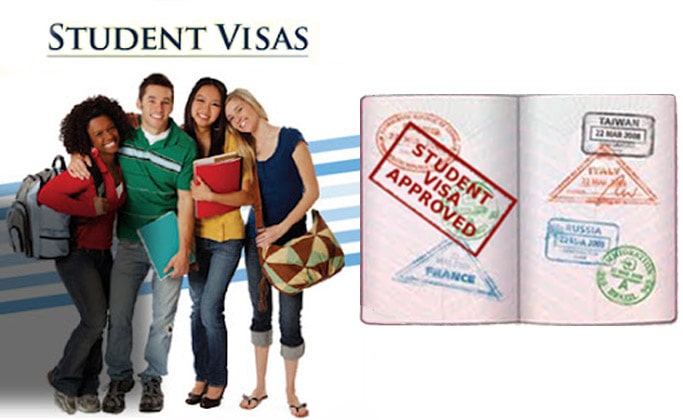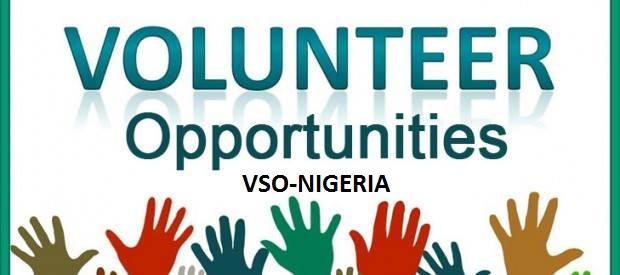
Introduction: Why NGO Jobs in Africa Are in High Demand
NGO Jobs With Visa Sponsorship for Africans. Non-Governmental Organizations (NGOs) play a vital role in Africa’s development, from healthcare and education to human rights, disaster relief, and environmental protection. As the continent continues to grow and face new challenges, NGOs are expanding their operations and opportunities for requiring skilled professionals from across the world. Many of these organizations offer visa sponsorship, opening doors for foreigners who wish to contribute meaningfully, skillfully to their company while living and working in the country of their choice.
This comprehensive guide explores everything you need to know about NGO jobs in Africa with visa sponsorship—the types of organizations hiring, roles available, how visa sponsorship works, and how to secure a position.
Why NGOs in Africa Offer Visa Sponsorship
Visa sponsorships are typically granted when a role requires specialized skills that are not readily available locally. Africa’s NGOs often operate in high-stakes environments, dealing with health crises, education reform, climate emergencies, and conflict zones. In such contexts, international expertise becomes critical.
Key reasons NGOs offer visa sponsorship include:
- Shortage of skilled professionals in certain fields (e.g., public health, logistics, fundraising)
- Need for international or multicultural representation
- Partnership mandates from international donors
- Emergency deployments (e.g., disease outbreaks, refugee crises)
Top International NGOs Offering Jobs in Africa With Visa Sponsorship
Many globally recognized NGOs actively sponsor visas for qualified international staff. Below are some top-tier organizations operating across multiple African countries:
| NGO Name | Headquarters | Presence in Africa | Visa Sponsorship |
|---|---|---|---|
| Médecins Sans Frontières (MSF) | Switzerland | 25+ African countries | Yes |
| International Rescue Committee (IRC) | USA | Kenya, Uganda, Ethiopia, Nigeria, etc. | Yes |
| Save the Children | UK | Sub-Saharan Africa | Yes |
| CARE International | USA | West, East, and Central Africa | Yes |
| World Vision International | USA | 30+ African countries | Yes |
| Oxfam International | UK | South Africa, Ethiopia, Nigeria, etc. | Yes |
| Plan International | UK | 25 African countries | Yes |
| UNICEF | UN Agency | All of Africa | Yes |
| UNHCR | UN Agency | All of Africa | Yes |
| Catholic Relief Services (CRS) | USA | Nigeria, Uganda, DR Congo, etc. | Yes |
Types of NGO Jobs in Africa Eligible for Visa Sponsorship
Not all positions offer sponsorship. Most NGOs prioritize visa sponsorship for mid-level to senior roles, technical experts, and emergency response professionals. Some common roles include:
1. Public Health Specialists
- Focus: Infectious disease control, maternal health, immunization programs
- Common countries: DR Congo, South Sudan, Nigeria
- Skills needed: Epidemiology, nursing, clinical medicine, public health
2. Program Managers and Coordinators
- Focus: Education, gender equality, WASH (Water, Sanitation, Hygiene), livelihoods
- Needed for: Overseeing program implementation, team coordination, and donor reporting
3. Humanitarian Logistics Officers
- Focus: Supply chain, procurement, field logistics in emergencies
- Common in: Conflict-affected regions like Somalia, Chad, CAR
4. Grants and Fundraising Specialists
- Focus: Proposal writing, donor engagement, project budgeting
- Employers: Larger NGOs like World Vision, Plan, Oxfam
5. Education Advisors
- Focus: Curriculum development, teacher training, policy advising
- Countries: Ethiopia, Malawi, Liberia
6. Monitoring and Evaluation Officers
- Focus: Data analysis, performance measurement, impact assessment
- Must know: Tools like SPSS, KoboToolbox, and logical frameworks
7. Legal and Human Rights Advocates
- Focus: Refugee law, gender-based violence, child protection
- NGOs: UNHCR, Amnesty International, Human Rights Watch
Countries in Africa Where Visa-Sponsored NGO Jobs Are Common
Some African countries have a high presence of international NGOs and streamlined visa processes for foreign workers:
| Country | Why It’s Popular for NGO Work |
|---|---|
| Kenya | Nairobi is a regional hub for the UN and NGOs |
| Uganda | Hosts many refugees, strong NGO sector |
| Nigeria | Active in conflict zones, health, and education |
| Ethiopia | UN headquarters, large displaced populations |
| South Sudan | Humanitarian crisis zone |
| DR Congo | Conflict, health, and natural disasters |
| Tanzania | Focus on health and education projects |
| Malawi | Development and public health priorities |
| Rwanda | Regional peacebuilding and tech NGO growth |
| Mozambique | Climate disaster response and aid needs |
Visa Sponsorship Process: How It Works for NGO Jobs
The visa sponsorship process varies slightly by country and NGO, but typically includes:
- Job Offer
- You apply and are selected for the role.
- Work Permit Application
- The NGO submits your work permit application to the relevant immigration authority.
- Supporting Documents
- You provide a valid passport, degree certificates, medical records, police clearance, etc.
- Visa Issuance
- Once the permit is approved, you’re issued a visa tied to your job.
- Arrival & Registration
- Upon arrival, you must register with immigration or a local ministry of labor.
Note: Many NGOs cover visa application fees, flights, insurance, and accommodation.
How to Find NGO Jobs in Africa With Visa Sponsorship (Step-by-Step)
Here’s a structured roadmap for landing a sponsored NGO job:
Step 1: Choose Your Area of Expertise
Identify which sectors align with your skills:
- Health
- Education
- Emergency Relief
- Child Protection
- Food Security
Step 2: Build an NGO-Friendly CV
- Highlight your international or cross-cultural experience
- Use action words and quantify achievements
- Tailor each application
Step 3: Use Trusted NGO Job Portals
Apply through websites that specifically list NGO jobs with visa options:
Step 4: Target Organizations That Mention Visa Sponsorship
Always read the job post carefully. Keywords to look for:
- “Open to international applicants”
- “Work permit provided”
- “Visa sponsorship available”
Step 5: Prepare for Interviews
- Demonstrate field readiness
- Show cultural sensitivity
- Highlight your commitment to humanitarian goals
Top Skills That Make You Stand Out for Visa-Sponsored NGO Jobs
- Fluency in French or Portuguese (for West & Central Africa)
- Experience in conflict or post-conflict settings
- Technical qualifications (e.g., MPH, PMP, M&E certification)
- Adaptability and resilience
- Strong understanding of international donor frameworks (USAID, ECHO, DFID)
Challenges and What to Expect
Working in Africa as a foreigner, especially through NGOs, is highly rewarding but not without its challenges:
- Living Conditions: Field locations may lack modern amenities
- Security Risks: Some regions experience instability
- Cultural Barriers: Adaptation to local norms and languages is key
- Permit Delays: Bureaucracy can slow down processing
Preparation and openness go a long way in making your transition smoother.
Success Stories: Real-Life Experiences
Many international professionals have launched thriving humanitarian careers through NGO jobs in Africa. Here are two examples:
- Sophie from France: Landed a position with MSF in Chad as a logistics coordinator. She was sponsored for a two-year work permit and later promoted to regional manager.
- Michael from Canada: Started with a short-term consultancy with Plan International in Uganda. His performance led to a full-time role with visa sponsorship and relocation support.
FAQs About NGO Jobs in Africa With Visa Sponsorship
Q: Can fresh graduates apply for visa-sponsored NGO jobs in Africa?
A: It’s rare but possible. Most NGOs require at least 2–3 years of experience. Internships or volunteer programs are a good starting point.
Q: Do NGOs also sponsor family visas?
A: Larger NGOs (like UN agencies or IRC) often provide dependent visas, school fees, and relocation packages for families.
Q: Is French necessary for all NGO jobs in Africa?
A: Not always. But it’s a major advantage in countries like Senegal, DR Congo, and the Ivory Coast.
Q: What’s the average salary for a foreign NGO worker in Africa?
A: Depending on the organization, roles may pay between $2,000 to USD 7,000/month—often tax-free, with housing and insurance benefits.
Conclusion: A Gateway to Purposeful Work and Global Impact
Securing an NGO job in Africa with visa sponsorship is more than just employment — it’s an opportunity to make tangible contributions to communities in need. Whether you’re a public health expert, an education specialist, or a logistics officer, NGOs in Africa are actively looking for dedicated, skilled professionals. With the right preparation, persistence, and passion, you can turn your career into a meaningful mission.
Related content:





